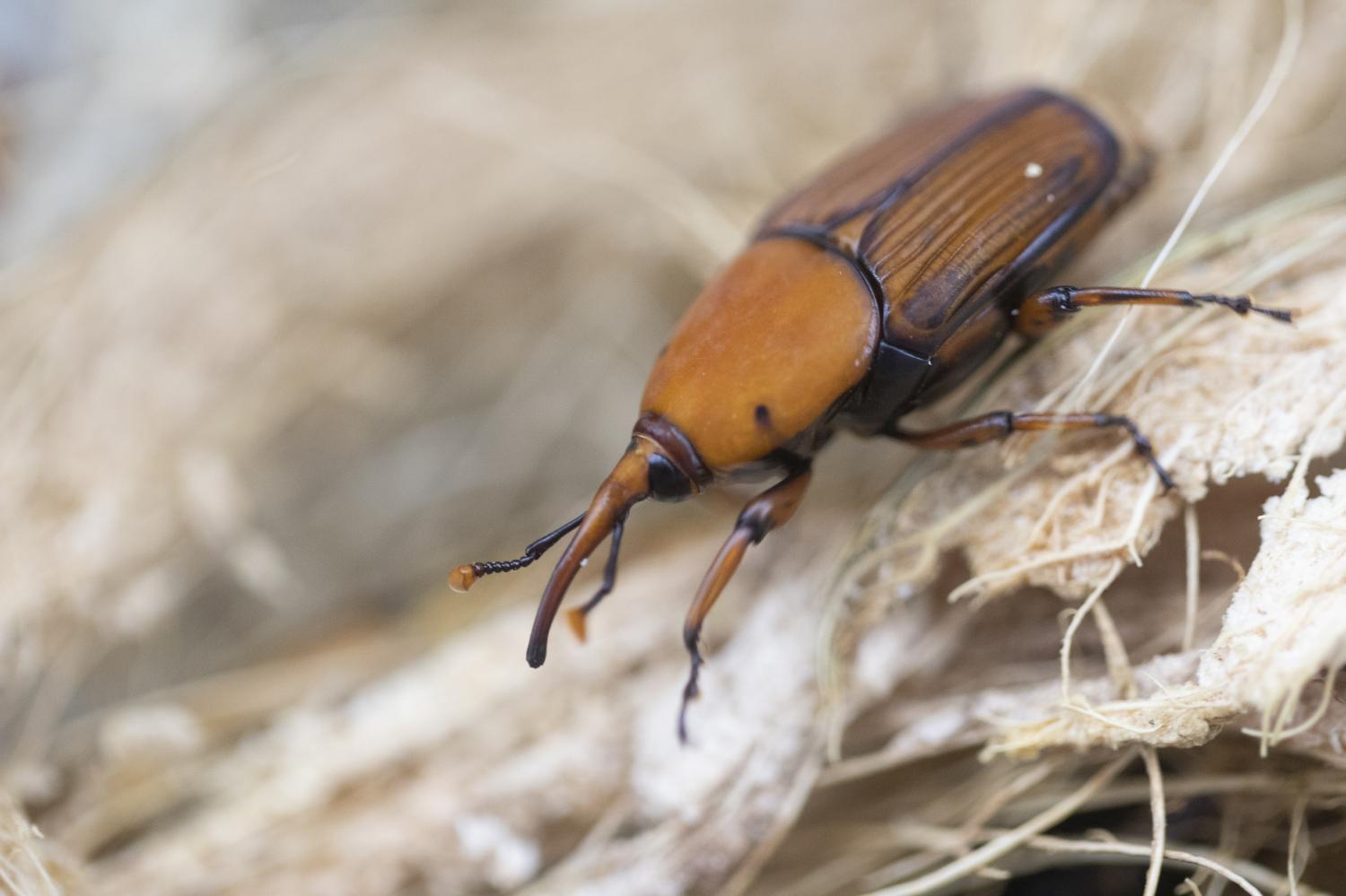You should not expect a typical chef's table experience at Inno.Ento.Food. The chef's table project was developed two years ago by Exofood Thailand in collaboration with FabCafe Bangkok and Thapakorn "Chef Pong" Shinawasi so diners could enjoy a four-course tasting meal that features creative, ingenious and nutritional dishes made from insects.
Athivach Pongsattasin, one of the co-founders of Exofood Thailand -- a developing research centre for alternative protein -- said that as an avid foodie, he is thrilled with the idea of incorporating insects as a food source.
Video by Suwitcha Chaiyong and Jetjaras Na Ranong
"Insects can be used as food. Since I enjoy eating, I want to share my imaginative culinary ideas and make them a reality. Inno.Ento.Food is not our first project. We have designed and created insect dishes several times before. We gained experience and from the feedback we received, we improved the flavour of our dishes and made them easy to consume," said Athivach.
As part of Bangkok Design Week 2022, which runs until Sunday, an Inno.Ento.Food meal starts with one of two starters such as ruang pueng oan yang bai toey (roasted pandan honeycomb). Athivach said local people use banana leaves for this, but in order to create a distinctive dish, the team decided to replace banana leaves with pandan. A 3D printed dome of sauce tops the honeycomb to add aroma and artistic design to the dish.
The next starter is yam salad kai mod daeng (sour and spicy ant eggs salad). Athivach explained that the purpose of this dish is to tantalise the tastebuds before continuing to the main dish.

Clockwise from left, Exofood Thailand co-founder Athivach Pongsattasin, entomologist Aviruth Thawansakvudhi, executive consultant Charee Boonyavinij and co-founder Chonticha Sujitalom. Exofood Thailand
"The team was looking for something sour and a bit spicy to tempt people's appetite. Thus, we chose queen ant eggs which have a sour flavour," he explained.
The main course is khao na mangda sam jee (rice field, giant water bug and three insects) and was inspired by a popular farm-to-table dining concept.
"The dish gives a feeling of a rice field by serving rice, vegetable and pon [Isan chilli dipping sauce] made from three insects -- crickets, mole crickets and a kind of cricket named Brachytrupes. The dish is singular and unusual, but powerful since it provides an unusual experience to customers," Athivach said.
This chef's table project finishes off with an ice cream dessert made from palm weevils.
"At Exofood Thailand, we raise organic palm weevils and feed them food that makes them give off a coconut scent. Palm weevils are used as the main ingredient to make kati ice cream [coconut milk ice cream]. This palm weevil ice cream is served with crumble made from other insects. The dish was designed to look more international, but still have a Thai vibe," explained Athivach.
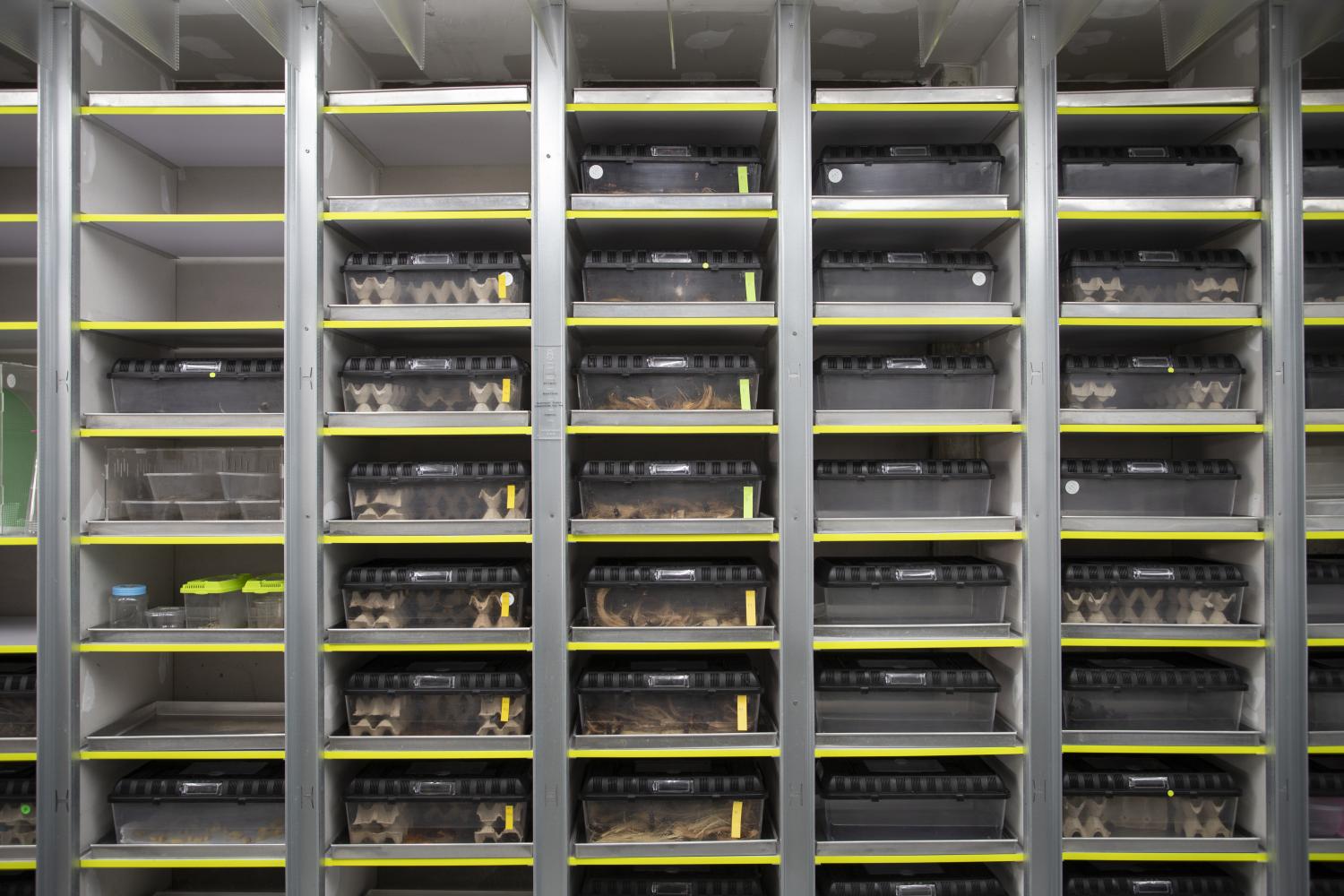
Vertical farming at Exofood Thailand.
Consuming insects as food is not new for Thais, who are familiar with fried crickets, fried bamboo worms and ant egg omelettes, but not everyone wants to try these dishes. Exofood Thailand was established in 2020 with the aim to study insects and farm them in a hygienic environment, as well as to change the image of food made from insects.
"Thais have a perception that devalues insects as they assume they are dirty and smelly. We believe that people do not have to consume insects in their normal form. They can be transformed into other forms such as sauce, dips or soup. People do not feel disgusted when consuming insects in a different form. We want to establish a site for insect farming and research which will help visitors learn more about insects and feel less disgusted by them. We decided to utilise vertical farming because we want to use limited space efficiently. The workstation must be clean and ventilated with proper light. The temperature is set between 28-29C to be appropriate for insects," Athivach said.
"Unlike Thais, people in Europe and the US are interested in insects and consider them as future food. Since livestock contributes to global greenhouse gas emissions, we should not increase the expansion of livestock. Since the world population continues to increase, people need an alternative protein source and insects are the best choice which will help reduce the carbon footprint."
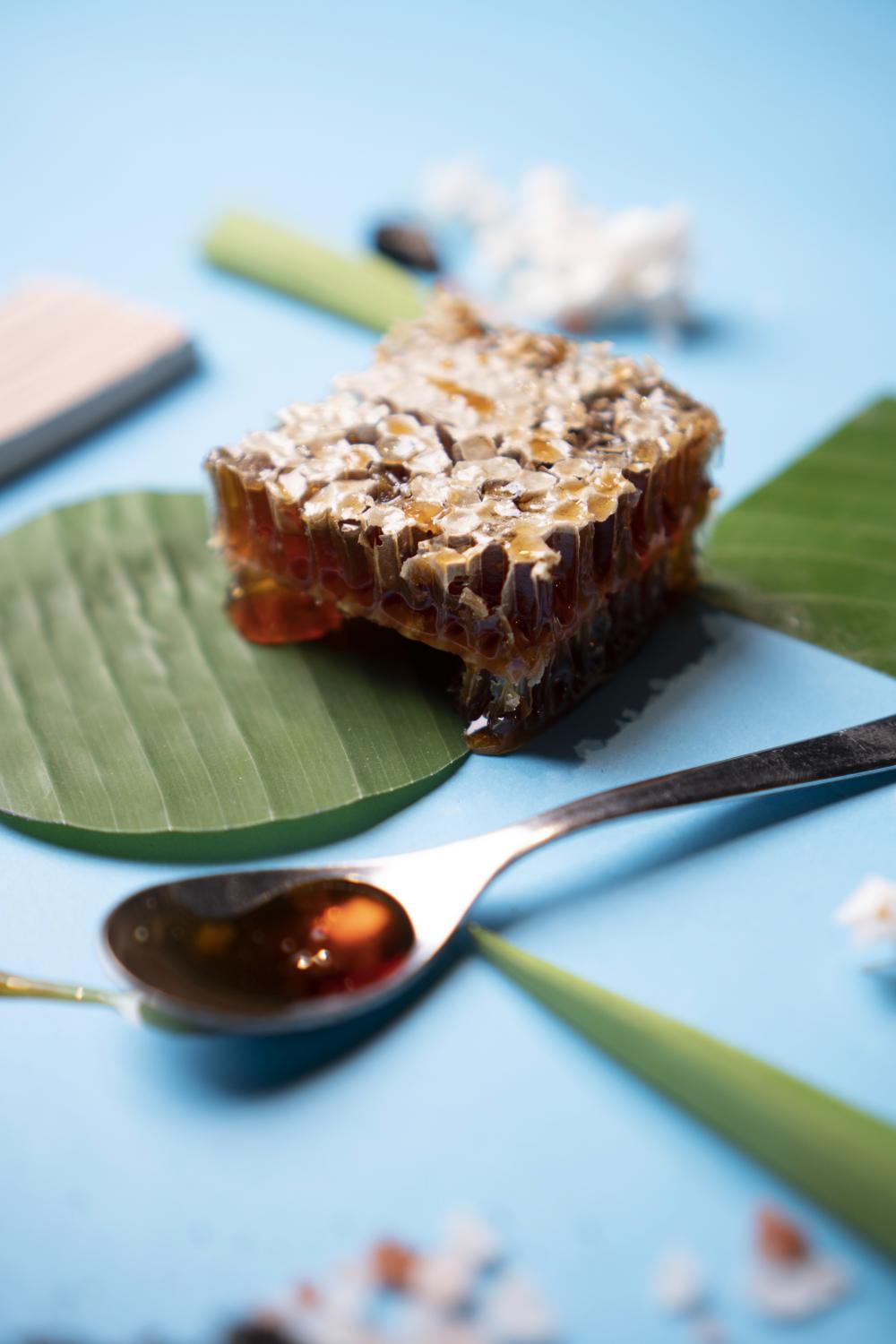
The starter dish ruang pueng oan yang bai toey (roasted pandan honeycomb). FabCafe Bangkok
At Exofood Thailand, there are five kinds of insect -- palm weevils, mealworms, black soldier flies, Dubia roaches and house crickets. Athivach explained that these five insects were selected from over 100 choices in the country because they have the potential to be developed into products. Currently, Exofood Thailand produces insects as animal food, human food and for pest control.
"Palm weevils play a major role in Exofood Thailand since it is marketable and has the potential to be developed as human food. We have changed how farmers feed palm weevils by creating our own food mixture for them. Our palm weevils are clean and contain high nutrition, especially omega-3, omega-6 and omega-9 fats. Moreover, its lauric acid can reduce inflammation," Athivach explained.
"Mealworms are novel food and are the first kind of insects accepted as human food in Europe. Thais are familiar with mealworms, so they can be produced as human food and animal food. Dubia roaches can produce and transfer their high nutrition to animals that consume them. Black soldier flies are famous as efficient decomposers of food waste. For house crickets, they are raised here for feeding mantises."
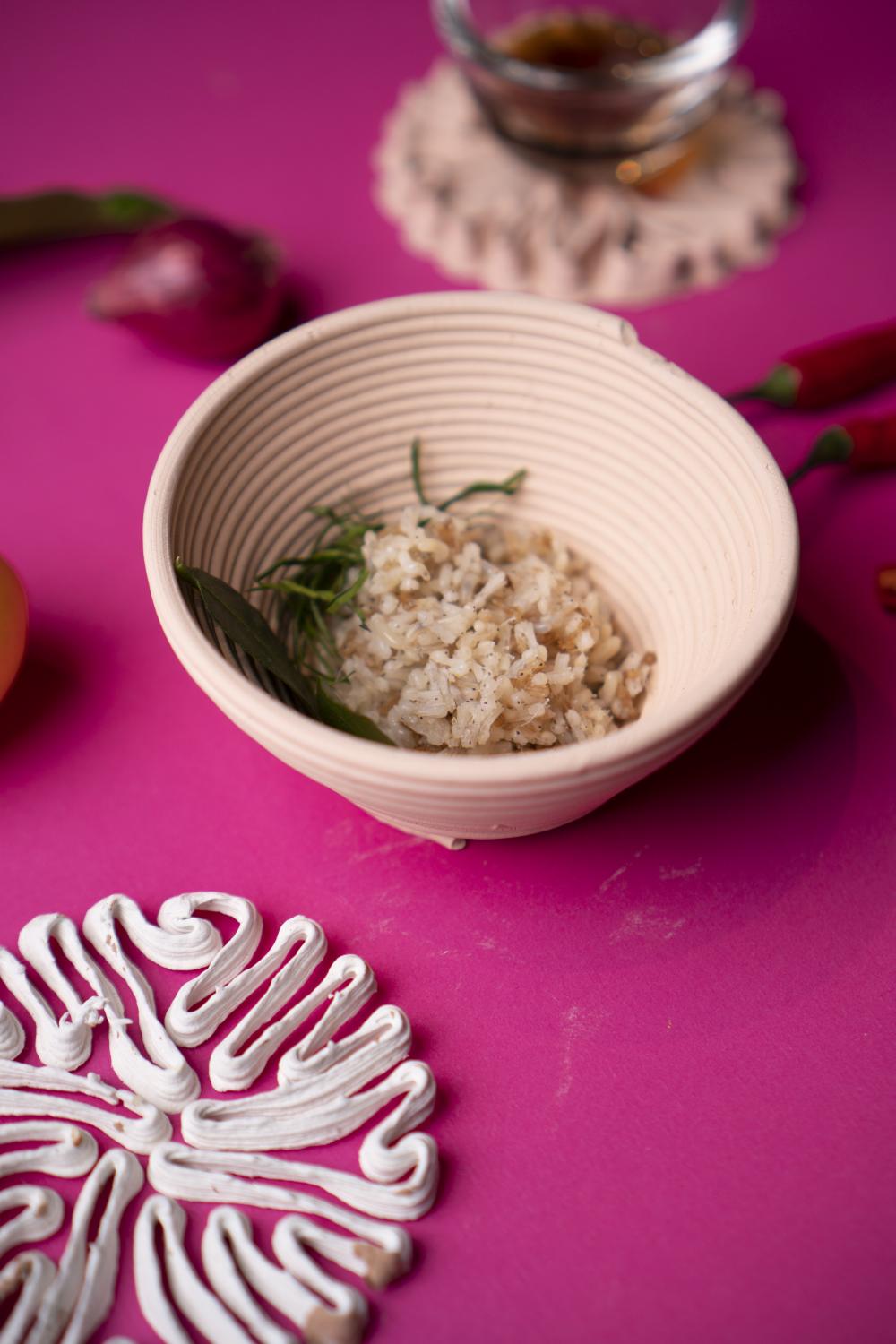
Yam salad khai mod daeng (sour and spicy ant eggs salad). FabCafe Bangkok
After two years of trial and error, Exofood Thailand has expanded immensely and extended its insect farming area. One of the co-founders, Chonticha Sujitalom, said their human food market has increased 20% from last year and has exported insect products to China and Vietnam, but they still have to work on the negative image of insects as food.
Exofood Thailand believes that in the future, people will be interested in insects as a source of food.
"Sooner or later, the number of people interested in insects will increase since climate change will continue and consuming insects will become more acceptable. Insects will be more important. We have also learned that insects can be more than animal food and human food. They can be used in other fields such as pest control. Farmers who have organic farms and want to learn more about pest control can visit us," said Athivach.
Inno.Ento.Food is available as part of Bangkok Design Week from Friday to Sunday at 6pm. A four-course tasting menu is 590 baht/person. This project is not appropriate for people who have allergies and/or asthma as well as people with bone diseases and/or pregnant women. Reserve seats in advance at facebook.com/fabcafebangkok or 083-619-9983.
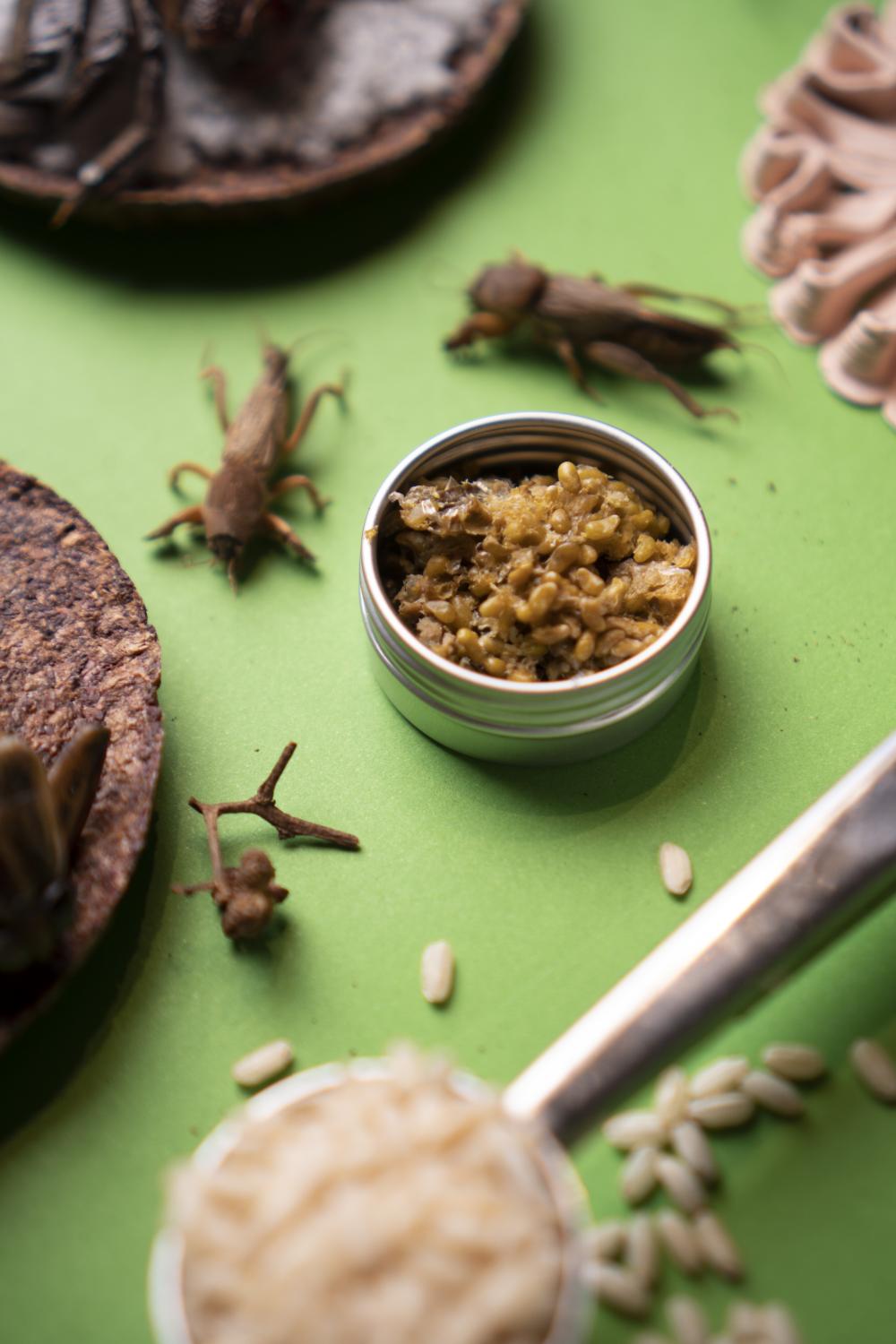
Main dish, khao na mangda sam jee (rice, giant water bug and three insects). FabCafe Bangkok

Palm weevil coconut milk ice cream. FabCafe Bangkok
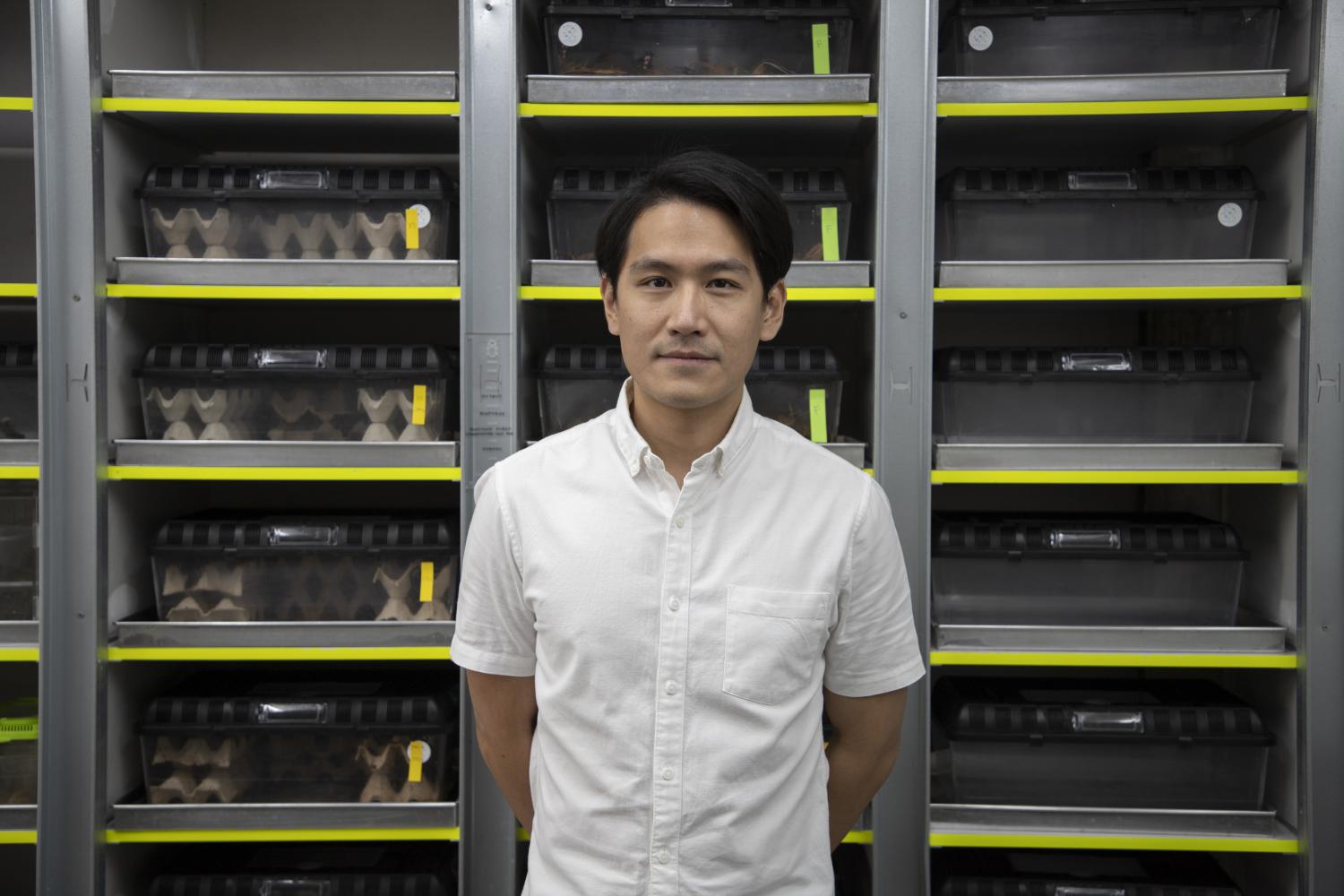
Athivach Pongsattasin, one of the co-founders of Exofood Thailand.
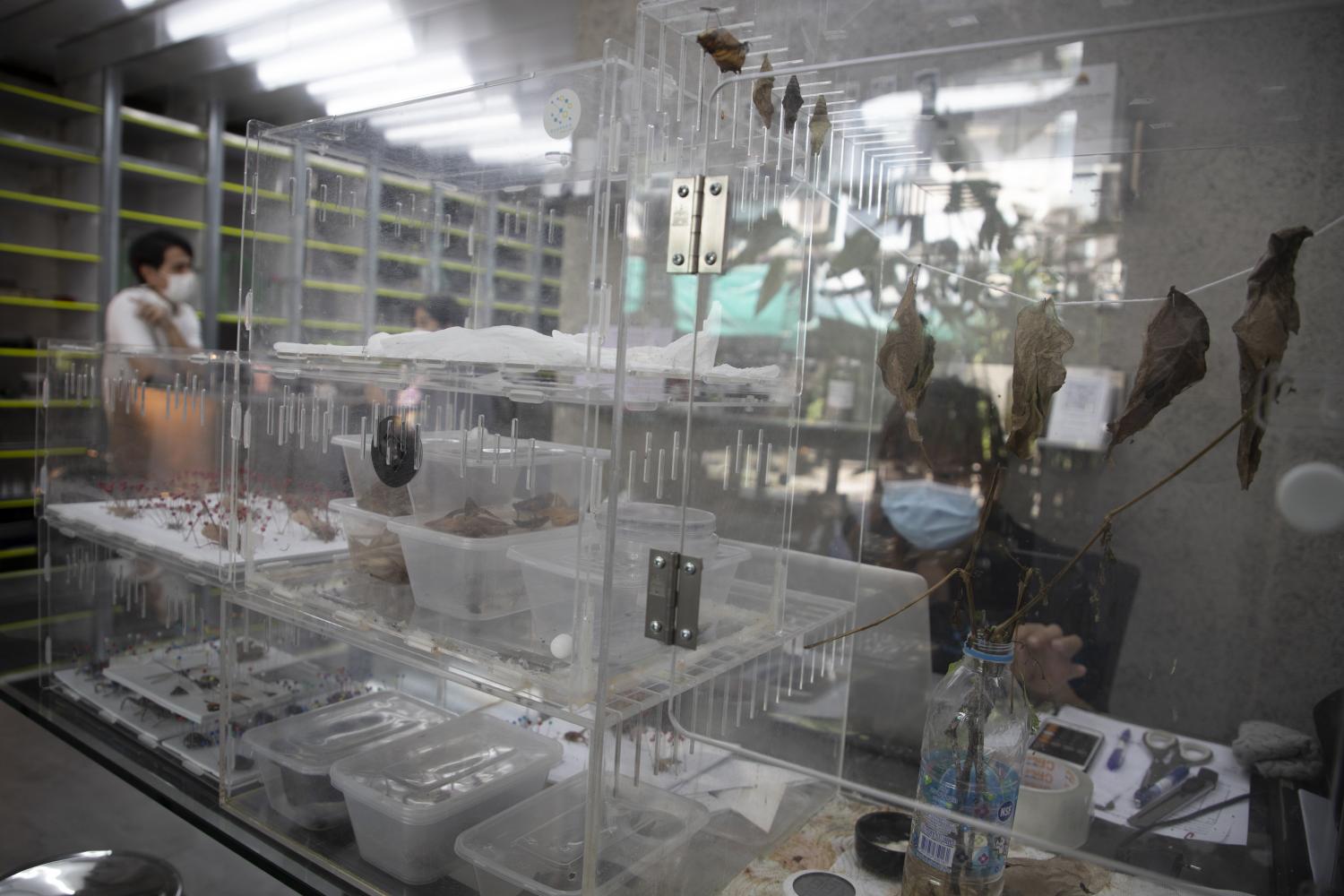
Exofood Thailand is a site for insect farming and research.
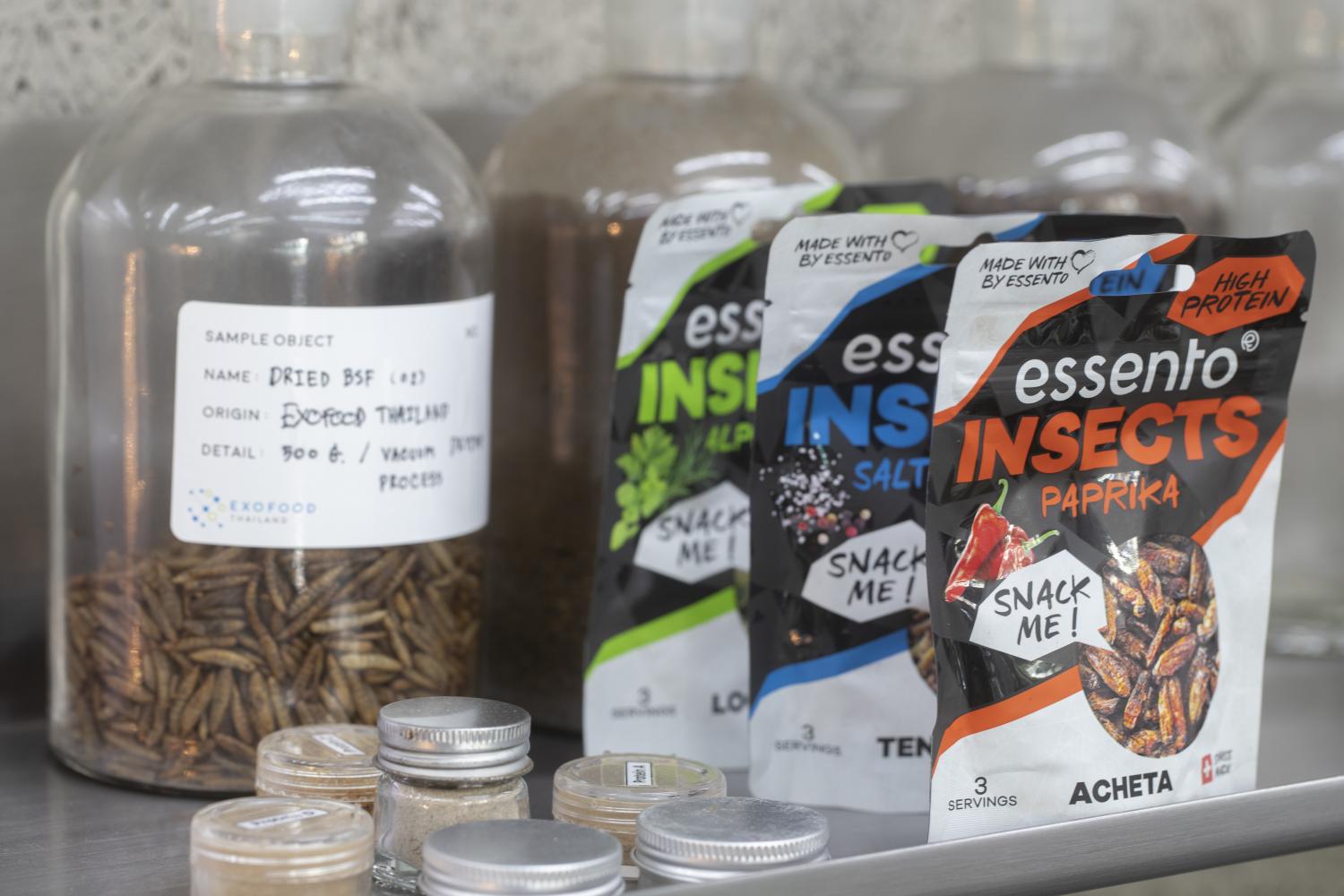
Products at Exofood Thailand.
